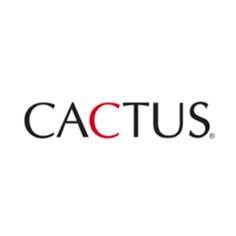How to solve the three toughest problems in academia? Three private companies try to find solutions
Research funding, job positions, and time—private companies are trying to solve these three complex problems facing Japanese academia. How can we foster an environment where researchers can engage in challenging research based on their curiosity and sustainably produce research results? We spoke with representatives of three companies working to solve this problem by working closely with researchers: Academist, Acaric, and Cactus Communications.
Funding:
A world where individuals directly support researchers
Ryosuke Shibato (CEO, Academist Corporation).
In the past, there were three main options for obtaining research funding: national and local governments, foundations, and corporations. Crowdfunding is attracting attention as a fourth method, especially as research funding by the government becomes more competitive and unstable every year. The most significant difference is that support is provided directly from the individual’s wallet. To date, our academic crowdfunding site, Academist, has raised approximately 200 million yen. However, this is less than 0.1% of the annual budget of 230 billion yen for the Grants-in-Aid for Scientific Research, which is still far below the current level.
However, the value of crowdfunding is not only monetary. Crowdfunding can create a financial and personal link between researchers and supporters. Such links have led to joint research, publication in major media, and networks that the country has not seen in the past. Over the past few years, university officials and researchers have gained a considerably better understanding of crowdfunding. I feel that more and more people are looking outside academia and seeing crowdfunding as a means to obtain research funding and for research outreach.
I want to encourage a new way of conducting research. Each of the approximately 300,000 Japanese researchers has hundreds or thousands of fans and receives continuous support. It is essential to build a next-generation team for future research. Through crowdfunding, we would like to realize an “open academic industry” that continuously attracts people and funds. We can create diverse partners inside and outside the laboratory, strategically share roles, and disseminate information without being confined to the old top-down framework involving professors, associate professors, and assistant professors. We will create a big movement with researchers who have the power to change the situation.
Positions:
Creating a safe place where doctoral researchers can challenge themselves
Ryo Yamada (President, Acaric Corporation)
Acaric’s mission is to optimize the distribution of knowledge that academia posseses. In Japan, the employment rate of highly capable PhDs in the private sector is low. The founder, Nobunaga Hayashi, started the company to solve this problem based on his own experience in graduate school.
There is a deep-rooted misunderstanding between companies and graduate students regarding private-sector employment for PhD holders. Universities strongly believe that PhD holders should stay in academia. Companies may want to hire PhD graduates, but the PhD holders tend to stick to their research, while the private companies are reluctant to hire graduates in their 30s, stating that they lack experience. The current situation is not conducive to optimization.
This is where private companies like us come in. At Acaric, we have many experienced employees with doctoral and post-doctoral degrees and understand the positions of both postgraduate students and companies. Because we are a private company, we can match people without being bound by preconceived notions about fields or industries. We have gained a deep understanding of graduate students’ research and discovering their core competencies. Therefore, we can propose jobs in areas that students may not have thought of and where they can use their abilities, thereby broadening their options.
I am often asked, “What skills acquired in academia will be useful in a company?” Research is a process where you set your plan and work through the plan-do-check-act cycle to achieve results. We are highly regarded as a potential employer of doctoral students in research and development, engineering, analysis, and consulting in the private sector. Our job is to create an environment where people who want to take on the challenge of research in academia can go on to do master’s and doctoral programs without worrying about their future and can focus on their research and take on challenges without worry. There may be cases where people want to become working students because they have worked in the private sector, and we want them to feel that they can return to the private sector or academia any time. I would like to collaborate with people who have graduated from Acaric and are active in the field and communicate a new way of life for Ph.D. graduates.
Time:
Using technology to give back time and freedom to researchers
Makoto Yuasa (President, Cactus Communications)
Since its founding, Cactus Communications (CACTUS) has been working to create a world where researchers have the freedom and time to conduct research and are not handicapped by geography or language. The competition to publish papers is becoming increasingly fierce, and researchers’ time and freedom are being curtailed by increasing workload and the need to secure positions and budgets. We want to change the situation where researchers’ energy and time, which should be extremely valuable for human development, are being stolen by a distorted system.
Technology is the key to solving problems. There is a limit to how much human effort by one company can help tackle this challenge. There is a lot of room to optimize the activities of academia, from day-to-day information gathering to publication to distribution. With our in-house technology team, CACTUS focuses on developing AI tools, platforms, and apps to support research using technology such as machine learning and natural language processing (NLP).
Many researchers have now mastered the art of completing papers in a short period using automated translation and English editing tools. Academic publishers are also using AI to improve the accuracy of paper screening and shorten publication time.
Because research is highly specialized, technology can help process information. We can provide solutions that supplement human intervention with automation by leveraging the expertise we have gained over many years of providing extensive services to individual researchers.
Recently, we released a platform for individual researchers called Researcher.Life, which integrates multiple AI-powered research support tools for researchers. It includes a pre-submission paper assessment tool, an app that recommends papers to read, skill-building courses, and a community of peers. In the future, we would like it to grow into a global researcher ecosystem where everything related to research activities can be completed there. I would like to explore what we can do as a company so that researchers can focus on their essential work.
Companies Supporting Academia
Challenges in working with universities
Makoto Yuasa: As a private-sector company, I think what bothers us the most is universities that place more than necessary importance on “fairness.” It’s not uncommon for a proposal that we’ve worked hard to come up with to be met with this reply: We can’t maintain fairness with just one company, so we’ll proceed with several companies.
Ryo Yamada: Competition in the human resources industry is fiercer today and sales by universities is intense. We’ve often had the painful experience of not being taken seriously because we are a recruiting agency.
Ryosuke Shibato: It’s the same with crowdfunding. People say, “It’s not fair to only use academists. There have seen cases where researchers have said they wanted to use the funds, but it took two years for the president to allocate the funds and we missed the opportunity. It may be necessary to update the decision-making process on the university side. side.
Supporting researchers
Ryo Yamada: I have genuine respect for researchers, but at the same time, I feel I have a mission to make use of the advanced human resources that the government has spent so much money developing. If becoming a vocational researcher is an option, society should work toward making this option easier. And when the time comes to seek another career, we want to be there as a safety net.
Ryosuke Shibato: Right now, academia itself is undergoing a significant transformation. During a transitional period when the information revolution is dramatically changing the way publishing and universities are organized, I think that research that can change the world will be born by enhancing the ability of individual researchers to communicate. I want to create a place where we can combine the capitalistic way of thinking by private companies and the values of academia to start something completely new.
Makoto Yuasa: The ability of researchers to think and discuss comprehensively, stand up for themselves, and express opinions that differ from that of others should be used as a force in society. I believe that companies like ours are meant to collaborate in protecting their freedom. By supporting academia, we will protect science, technology, and culture for the next 30 to 50 years.
This article was original published in Japanese on Science News (科学新聞) on September 3, 2021. The article has been translated in English with permission.

